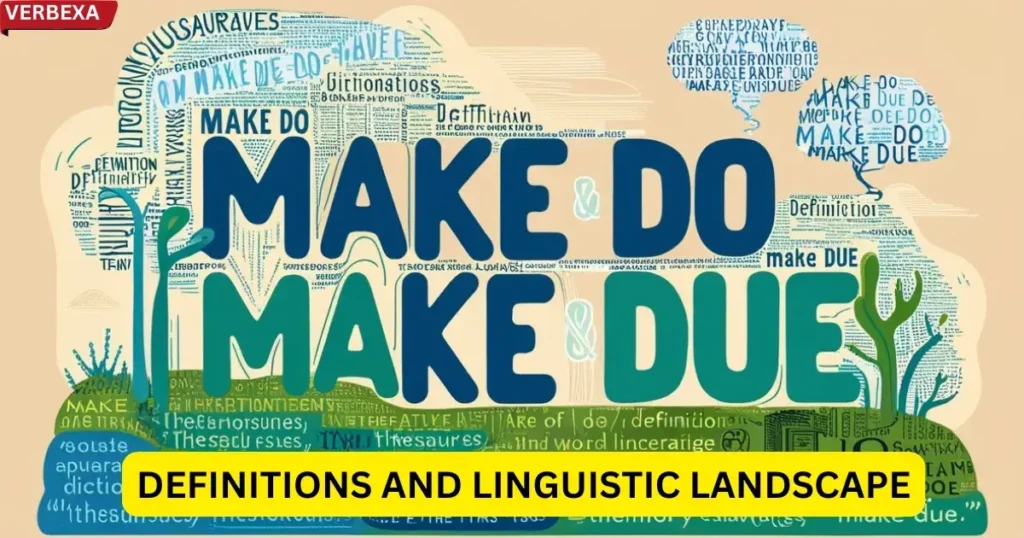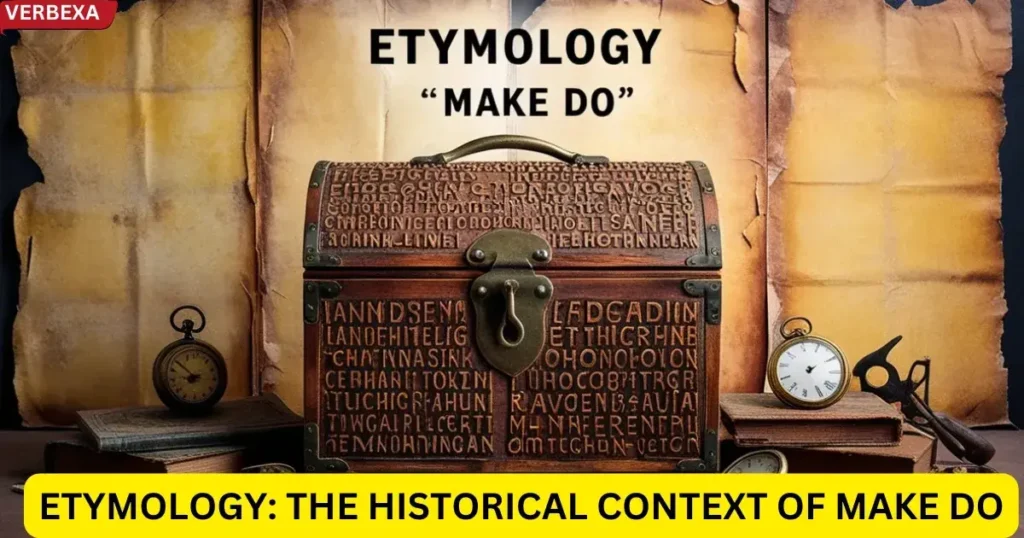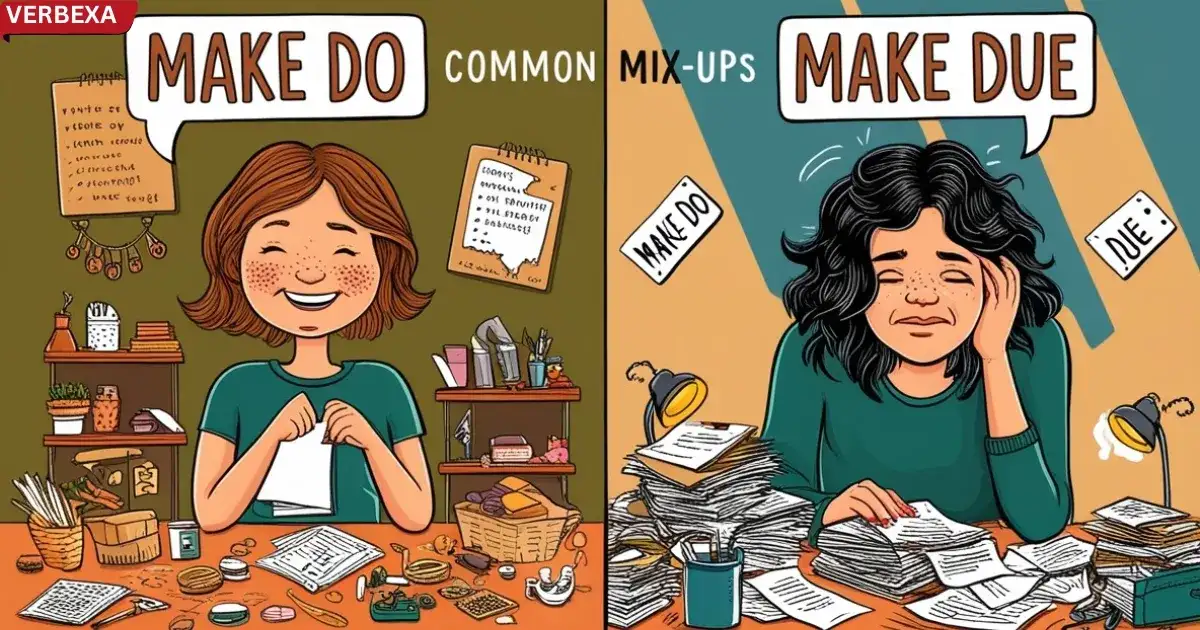In the vast landscape of English language usage, few phrases create as much confusion as make do or make do. Imagine you’re in the middle of a home renovation with limited resources, and someone tells you to “make do” or “make due” – which is correct? This linguistic conundrum has perplexed grammarians and everyday speakers alike, leading to widespread misuse and communication challenges.
The distinction between make due or make do is more than just a grammatical nitpick; it’s about communication clarity and expressing yourself precisely. Whether you’re navigating a blackout with limited supplies or working on a shoestring budget, understanding the nuanced difference can transform how you communicate.
Definitions and Linguistic Landscape: Make Due or Make Do

Make Do: The Art of Improvisation
Make do is a powerful phrase that embodies resourcefulness and creativity. It means to manage with limited resources, essentially making the best of a challenging situation. For example:
- During the pandemic, many people had to make do with home office setups using kitchen tables and makeshift workspaces.
- Students on a tight budget often make do with secondhand textbooks and shared resources.
Make Due: A Grammatical Misconception
Technically, “make due” is not a standard English language expression. It’s a common mix-up that stems from confusing the phrase with “due to,” which indicates a reason or cause. The correct phrase is always make do.
Synonyms: Alternatives to Make Do
Make Do Synonyms:
- Improvise
- Manage
- Cope
- Adapt
- Utilize
- Work with
- Get by
- Persevere
- Resourceful
- Adjust
Comparison Table: Make Do or Make Due
| Aspect | Make Do | Make Due |
|---|---|---|
| Definition | Manage with limited resources | Grammatically incorrect |
| Usage | Practical scenarios of limited supplies | No standard usage |
| Context | Renovation, financial constraints | None |
| Grammatical Correctness | Correct | Incorrect |
When to Use Make Do
Choosing to make do isn’t just about language – it’s about resourcefulness. Use make do when:
- You have limited financial resources
- Facing unexpected challenges
- Need to improvise solutions
- Working with constrained circumstances
Everyday Usage Examples
- “We’ll make do with the old camping gear until we can afford new equipment.”
- “During the power blackout, we had to make do with candles and flashlights.”
- “College students often make do with minimal furnishings in their first apartments.”
Etymology: The Historical Context of Make Do

The phrase make do derives from older English where “do” meant “to suffice” or “be enough”. Its etymology reflects a pragmatic approach to problem-solving, emphasizing adaptability and resilience.
Common Mistakes to Avoid
Grammarians consistently warn against these errors:
- Never write “make due“
- Remember that make do implies improvisation
Conclusion: Mastering Make Do
Understanding the nuanced difference between make do or make due is more than a grammatical exercise – it’s about embracing resourcefulness and clear communication. By choosing make do, you’re not just using a phrase; you’re embodying a mindset of creativity and adaptability. The phrase make do speaks volumes about navigating constraints and making do or due to circumstances. Understanding the make due meaning, or rather the lack thereof, is key to avoiding this common error.
When faced with limited resources, the appropriate response is always to find a way to make do or due, choosing the action that suits the situation. Proper use of made do or due demonstrates a strong command of the English language and communicates a clear understanding of the message you are trying to convey.
FAQs
Do you say make do or make due?
Always use “make do,” “make due” is grammatically incorrect.
What is the correct way to use do and due?
“Do” implies managing with limitations; “due” indicates a cause or reason.
What is an example of make do?
Using candles during a power outage is a classic example of making do.
When to use make or do?
Use “make” for creating or constructing; “do” for actions or managing.

This author is a passionate linguist and grammar enthusiast, dedicated to helping individuals master the art of language. With years of experience in teaching and editing, she brings clarity and precision to every sentence. Tina’s mission is to empower writers of all levels to express themselves with confidence and excellence.

